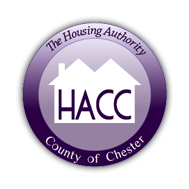Supportive Services
Housing Choice Voucher Homeownership Program
The use of Housing Choice Vouchers for homeownership will give many individuals and families of low incomes the opportunity to purchase their own homes.
Participants in the Housing Choice homeownership program may use their Housing Choice vouchers to make monthly mortgage payments for a maximum term of fifteen (15) years on a mortgage loan of twenty (20) years or more. Mortgage loans for less than twenty years may be subsidized for a maximum term of ten years. The final rule provides that the maximum term limit does not apply to elderly (being 62 or older) or disabled families.
For qualified Housing Choice Voucher (HCV) participants, HACC provides assistance for individuals/ families to purchase a home by applying their existing housing choice voucher to their monthly mortgage payment instead of their monthly rental payment.
A Housing Choice Voucher program participant who wishes to utilize their voucher subsidy to purchase rather than rent a home must meet the following initial eligibility requirements:
- MUST be enrolled in the Family Self-Sufficiency (FSS) Program
- MUST meet the required credit score of lenders
- Meet minimum income requirements ($14,500 per year)
- Families who are disabled minimum income requirements ($6,624 per year)
- MUST be employed continuously for at least 1 year
- MUST be a HCV participant with HACC for one year
- Families that have completed Pre-Purchase Housing Counseling
- MUST be a First Time Homebuyer (no family member has owned a house in three years)
- MUST be in full compliance with the current lease
- MUST attend a mandatory homeownership orientation
- Families must not have committed a felony crime in the past five years
- Families must not have committed fraud using federal money
- Home must pass 2 Inspections, one by an Inspector who is certified by the American Society of Home Inspection and a PHA Inspection
- Disabled or Elderly households are exempt from the employment requirement
Application Process: Persons interested in participating in the Housing Choice Voucher Homeownership Program MUST contact their HCV Case Manager FIRST for eligibility purposes. If you are not already in the Family Self-Sufficiency Program you must be in the program for at least 1 year before you are eligible for home ownership.
Waiting List: Spots in the homeownership program are limited.
FSS
The Family Self Sufficiency Program (FSS) is for participants who have a Housing Choice Voucher. Additional services through this program include; case management services, encouragement, and motivation to help families achieve their goals toward self-sufficiency.
Participants work closely with their Housing Specialist to identify long- and short-term goals that will increase self-sufficiency.
Referrals related to goal completion can include: child care, transportation, education, job training, employment counseling, household skill training and homeownership counseling.
If homeownership is the ultimate goal, participants are guided through the process of increasing credit scores, budgeting, saving toward a down payment, increasing earning potential and attendance in the First Time Home Buyer program, a program which assists participants by providing the information and support needed to successfully purchase a home.
An interest bearing Escrow account is set up for all participants who increase their earned income while in the program. At the end of the terms of participation, the family is awarded the Escrow balance to utilize at their discretion.
All Housing Choice Voucher families are eligible for participation in the FSS program and may be included in the Housing Choice Voucher Homeownership Program after a year in the FSS program.
For more information please contact the FSS Coordinator.
Housing Locator
The Housing Locator Program works with families and individuals who are homeless (or in danger of becoming homeless) to match them with affordable housing. The Housing Locator will often attend prospective unit visits with the client, as a means to develop rapport with prospective landlords, as well as to “pre-screen” the unit for housing quality standards. Following successful lease-ups, the Housing Locator transfers the client’s case to the Housing Locator Case Manager for continued support to the client for the following year to ensure that they remain stably housed.
Who is eligible?
Persons who are literally homeless
Persons in transitional housing
About Supportive Services
This Division is responsible for the implementation of the Family Self-Sufficiency Program (FSS), Supportive Services at Public Housing, procurement activities, grant writing, writing request for proposals (RFP's) and other various special program activities.
Supportive Services in Public Housing
The Resident Services Coordinator works directly with the residents at our Public Housing sites. This program offers the residents support, referrals to various services/agencies, helps them maintain their services and sets up health screenings and other community events. This program also maintains weekly office hours at each site to ensure the residents always have accessibility to services.

